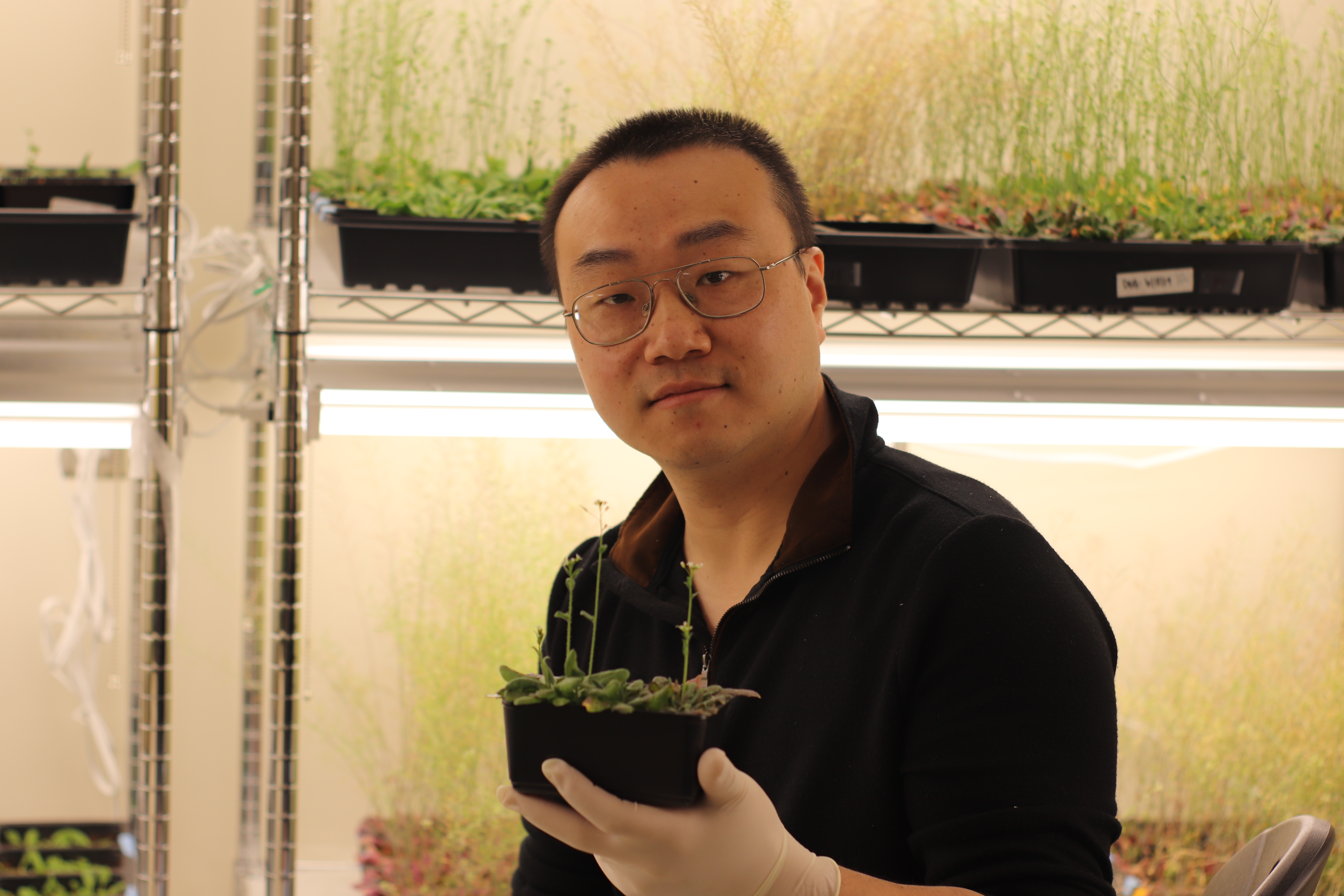
New Heat Sensing Gene to Help Crops Battle Climate Change
April 7, 2021| |
Researchers from the University of California Riverside (UC Riverside) discovered the second gene involved in temperature sensing in plants that could promote food security amidst climate change.
The researchers modified a completely temperature-insensitive mutant Arabidopsis to make it reactive to temperature again. Upon examining the genes of the twice-mutated plant, they found a new gene, RCB, with products that work closely with HEMERA, the first gene they discovered to stabilize the heat-sensing function. These genes are distributed in the nucleus and chloroplasts. Both genes work together to control a group of master gene regulators that serve multiple functions such as reacting to temperature, growth, flowering, and greening of plants.
The discovery of the second gene could help researchers develop heat-tolerant plants that can endure the adverse effects of climate change.
For more details, read the news release on UC Riverside News and the research article in Nature Communications.
| |
You might also like:
- Filipino Crop Scientists Tackle Ways to Face Climate Change and Globalization
- Gene Identified that Will Help Develop Plants to Fight Climate Change
- Gene Discovery to Help Peaches Adapt to Climate Change
Biotech Updates is a weekly newsletter of ISAAA, a not-for-profit organization. It is distributed for free to over 22,000 subscribers worldwide to inform them about the key developments in biosciences, especially in biotechnology. Your support will help us in our mission to feed the world with knowledge. You can help by donating as little as $10.
-
See more articles:
-
News from Around the World
- Climate Change Slowed Agricultural Productivity Growth by 21% since 1961
- Study Finds Spinach as Edible Substrate to Grow Meat from Lab
- New Heat Sensing Gene to Help Crops Battle Climate Change
- Health Canada: Gene-Edited Crops are Safe
- Experts Tackle Importance of New Breeding Technologies in Food and Nutritional Security
- GM White Clover Field Trial in Australia Gets Approval
- Experts Highlight Impacts of Agri-biotech Adoption in Vietnam
- Labeling Gene-Edited Foodstuffs is Impossible Says Italian MEP
-
Research Highlights
- Identified Gene Boosts Water Use Efficiency in Apples
-
Plant
- Japanese Consumers Prefer Gene Editing Applications on Vegetables over Livestock
- Experts Present Two Efficient CRISPR-Cas9 Systems for Soybean
- MitoTALENs Reveal Role of Mitochondrial Gene in Rice Pollen Development
-
Read the latest: - Biotech Updates (February 11, 2026)
- Gene Editing Supplement (January 28, 2026)
- Gene Drive Supplement (February 22, 2023)
-
Subscribe to BU: - Share
- Tweet

